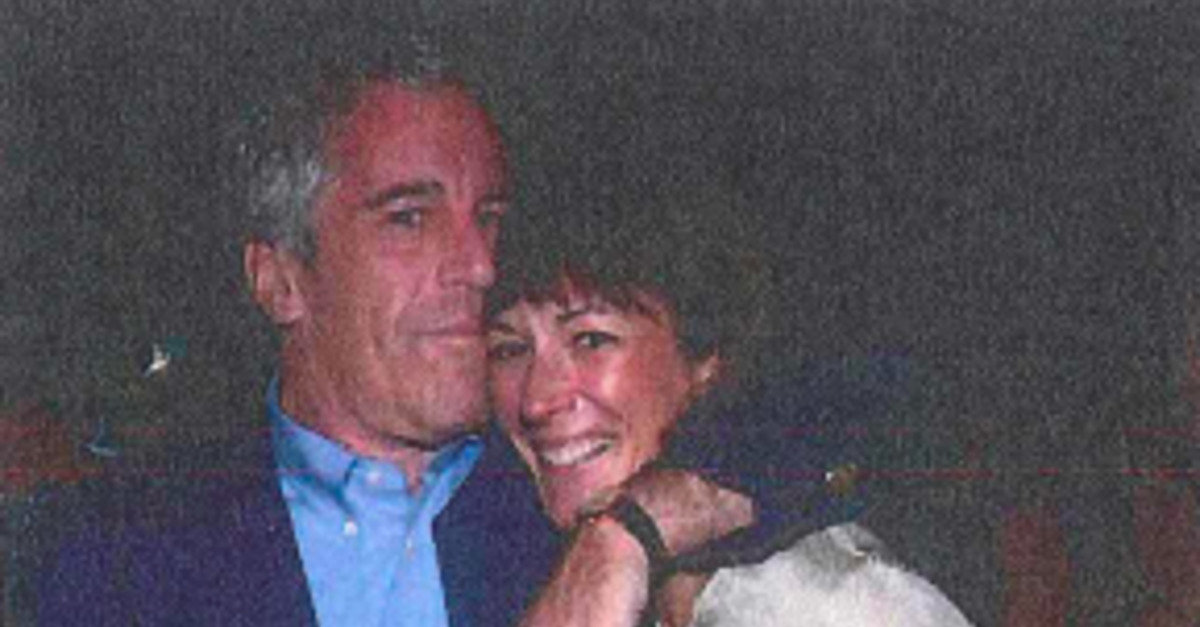
A federal court in New York City on Thursday ruled that several documents related to dead pedophile Jeffrey Epstein, his alleged global sex trafficking empire, and his high-profile accomplices will be unsealed and made available to the public — with some redactions.
Senior U.S. District Judge Loretta Preska was wholly unconvinced by arguments made by alleged sex trafficker Ghislaine Maxwell and her attorneys. During a teleconference hearing, the court determined Maxwell’s opposition to releasing those files had little legal weight.
“Ms. Maxwell proffers little more than her ipse dixit,” the judge said, employing a Latin term meaning an unproven assertion.
While the hearing itself was concerned with five specific files, the judge recited a long list of documents that would be made public — far in excess of the documents originally at issue.
Before today’s ruling, Judge Preska indicated that these files would be the subject of her ruling: “docket entries 143, 164, 172, 199, and 230, with respect to Does 1 and 2.”
She is now verbally ruling to unseal many other docket entries than those.
— Adam Klasfeld (@KlasfeldReports) July 23, 2020
Specifically, the court found that several documents previously ruled on would be released — as well as discovery motions and materials related to those documents. In sum, the judge determined that all of those documents qualify as “judicial documents.”
Maxwell had argued the material contained in those documents concern (1) personal matters which might “annoy or embarrass” Epstein’s alleged accomplices and others; (2) that the information may have been “abusively filed or untrustworthy”; and (3) that the information now concerns an ongoing criminal investigation.
“She provides no specifics for these conclusions,” Preska noted. “She refused to testify as to any consensual adult activity and generally would not testify about any activity concerning underage sexual activity.”
Each of those arguments was dispensed in turn.
“The court finds that any minor embarrassment or annoyance about behavior that has been widely reported in the press is outweighed by the presumption for public access,” Preska said.
The court ruled against the second argument, noting that it was a procedural claim that was ultimately deficient.
“In any event the court is dubious that such a fine-tooth-combed review is required,” Preska added. “The court finds that these interests are entitled to little weight in this case.”
As for the criminal investigation argument the judge said “Maxwell is not entitled to much weight here.”
“The countervailing interests fail to rebut the presumption of public access to the documents at issue and the motions in connection with those documents,” the judge continued. “The documents will be unsealed.”
The judge, however, noted one caveat: “Personal identifying information and the names of non-parties other than [Jane] Does 1 and 2 and other portions related to such non-party-specific conduct will be redacted from the documents being unsealed.”
While the court ruled many Epstein documents should be released, don’t expect them to be made public anytime soon.
Maxwell’s attorney Laura Menninger requested and received a one-week stay of the ruling in order to appeal to the Second Circuit. Meanwhile, both parties’ attorneys were ordered to confer about the next tranche of Epstein files that might be unsealed and how to speed up the process.
The underlying case here is a defamation lawsuit filed by Virginia Roberts Giuffre, who has been speaking out since 2011 when the United Kingdom’s Mail on Sunday published an article alleging that Epstein and Maxwell furnished her to Prince Andrew while she was Epstein’s “sex slave.”
A series of legal battles including Giuffre and Maxwell occurred both prior to and after the publication of that bombshell exposé. That long legal road is documented in an article available here.
By early 2015, Maxwell began to malign Giuffre’s honesty and truthfulness in the press by way of her agent Ross Gow. In September 2015, Giuffre filed a defamation lawsuit against Maxwell which was eventually settled. The discovery in that lawsuit forms the basis of the Epstein files, which number in the thousands, and are suspected to contain embarrassing and damaging allegations against high-profile individuals. There are upwards of 300 depositions contained in the massive tranche of files. At least 75 of which have been described by Maxwell’s own attorneys as “lurid depositions.”
The years-long court battle has largely been fought over what the court ruled were so-called “judicial documents.”
Per orders handed down by the U.S. Court of Appeals for the Second Circuit in 2019, motions previously ruled on by U.S. District Court Judge Robert Sweet in the underlying defamation cases qualified as such documents and were given the presumption of public access—meaning such documents would be released.
Preska spent several months considering whether to broaden the pool of documents which would ultimately be released to the public. The judge requested arguments for sealing and unsealing those would-be public papers from Giuffre, Maxwell, and from interested third parties such as the media, survivors, transparency advocates and both named and unnamed third parties believed and alleged to be implicated in Epstein’s global sex trafficking conspiracy.
In the end, however, the New York court largely decided to keep the public in the dark, deciding that “judicial documents” were limited to the definition already supplied by the appeals court “along with documents relevant to Judge Sweet’s decisions on those motions.”
[image via Department of Justice]